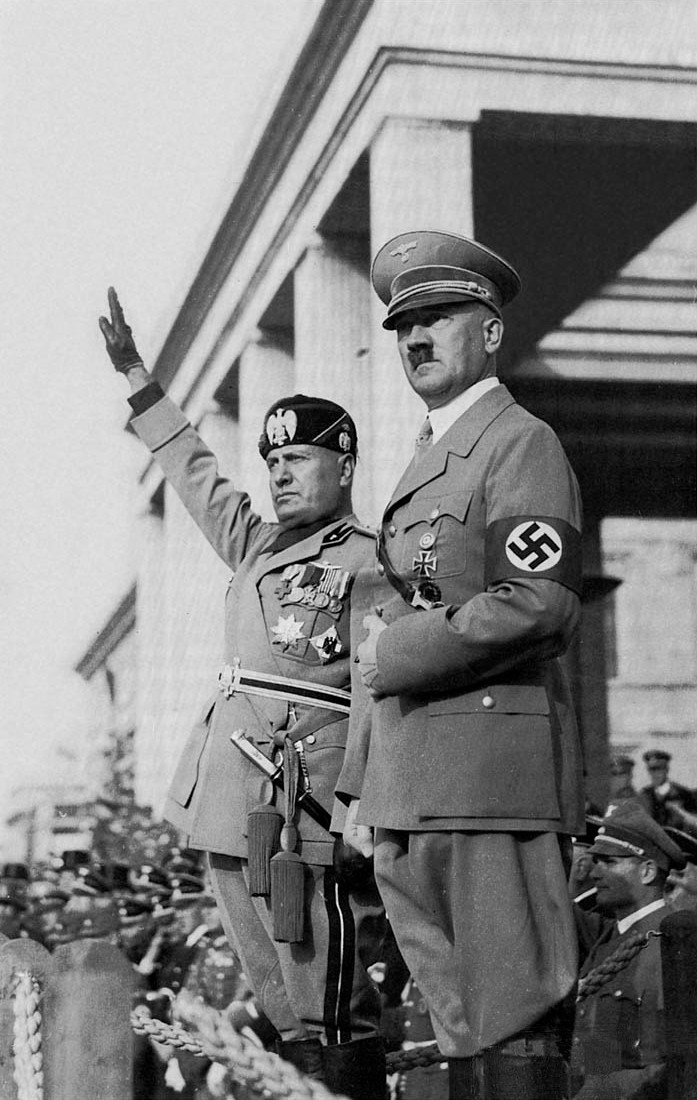
Fascism as a political movement lost its appeal after WWII, but is still present in some contemporary political movements and parties
SHOUKAT LOHAR
Way of organizing a society in which a government, ruled by a dictator, controls the lives of the people and in which people are not allowed to disagree with the government.(Britannica)
Fascism is a term used to describe an authoritarian political ideology that emerged in Europe during the early 20th century. It is characterized by extreme nationalism, authoritarianism, a belief in the superiority of one’s own race or nation, and a rejection of democracy and individual rights. The term “fascism” comes from the Italian word “fascio,” meaning “bundle,” which was used to describe a symbol of unity in ancient Rome.
Historical Background
Fascism emerged as a political movement in Italy under the leadership of Benito Mussolini in the early 1920s. Mussolini, a former Socialist, founded the Fascist Party in 1919 and gained power through a coup in 1922. He established a one-party dictatorship, suppressed political opposition, and created a cult of personality around himself.

Fascism gained popularity in other European countries during the 1920s and 1930s, particularly in Germany under the leadership of Adolf Hitler and in Spain under the leadership of Francisco Franco. Both leaders rose to power through a combination of political maneuvering and violence, and both established totalitarian regimes that suppressed opposition and violated the rights of minorities.
Different Aspects of Fascism
Fascism is characterized by several key aspects, including:
- Extreme Nationalism: Fascists believe in the superiority of their own nation or race and seek to dominate or conquer other nations and peoples.
- Authoritarianism: Fascist governments are typically led by a single leader who has absolute power and is not accountable to the people. They often use violence and intimidation to maintain their power.
- Militarism: Fascist regimes often glorify war and militarism, and use the military to maintain power and expand their territory. (Webster)
- Totalitarianism: Fascist governments seek to control all aspects of society, including the economy, education, and culture. They often use propaganda and censorship to control the flow of information and shape public opinion.
- Anti-Communism: Fascists are deeply opposed to communism and view it as a threat to their own ideology. They often use anti-communist rhetoric to justify their own authoritarianism and repression.

Is Fascism Present Today as a Form of Government?
While fascism as a political movement lost its appeal after World War II, it has not completely disappeared. There are still some groups and political parties that espouse fascist ideas and seek to gain power through authoritarian means. For example, the National Front in France, Golden Dawn in Greece, and the Jobbik party in Hungary have all been accused of promoting fascist ideas.
However, it is important to note that there is no single, universally accepted definition of fascism. Some scholars argue that fascism is a unique historical phenomenon that cannot be replicated in the modern world, while others argue that fascist ideas and tendencies can be found in many contemporary political movements.
In conclusion, fascism is an authoritarian political ideology that emerged in Europe during the early 20th century. It is characterized by extreme nationalism, authoritarianism, a belief in the superiority of one’s own race or nation, and a rejection of democracy and individual rights. While fascism as a political movement lost its appeal after World War II, it is still present in some contemporary political movements and parties.
_______________
 Shoukat Lohar is Assistant professor in English at Mehran University of Engineering and Technology Jamshoro. He can be reached at Shoukat.ali@faculty.muet.edu.pk
Shoukat Lohar is Assistant professor in English at Mehran University of Engineering and Technology Jamshoro. He can be reached at Shoukat.ali@faculty.muet.edu.pk